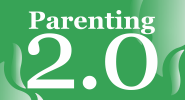Ain’t Misbehavin
When my daughter Alexa was in first grade, it was routine for her to collapse on the couch with her backpack after school and report how many “Cards” her classmate Jesse turned that day.
“Cards” were behavioral cards. Each student started the day with a green one. When a child did something the teacher – “Mrs. Steen the Mean Machine” – deemed inappropriate, she turned the card to another color. First offenses earned a yellow card, second orange, third red etc. After turning four cards, the student was “disciplined” by being confined to the classroom during recess.
Jesse happens to be Alexa’s first cousin. She adores him. It distressed her greatly to see him publicly shamed on a daily basis – hence the urgency of her after school reports.
Cards, when conceived, were accurately considered more compassionate than previously employed “three strikes with a switch” strategies. Since they failed to decrease students’ humiliation in the mandatory curriculum of mattering and feeling competent among peers, however, they still struck hearts if not hands.
When a child struggles with math, we say the math is difficult. When a child struggles with self-regulation we say the child is difficult.
Why? Self-regulation is a skill, a skill that benefits from the same educational process of every other skill: an accurate initial assessment of starting point, reasonable steps to success, proactive instruction, commitment to practice over time, praise for incremental progress and faith in capacity for mastery.
Shame retards the educational process. When the human brain experiences fear or stress, oxygen flow to the pre-frontal cortex – the part of the brain where rational thinking occurs – is reduced and stress hormones preparing the body for fast aggressive action are released. The capacity for self-regulation and learning become more difficult, not less.
In the same manner we don’t consider a first grader learning addition as “misbehaving” and a tenth grader learning calculus as “behaving”, the terms are no more appropriate when a child is learning self-regulation – or any other Life Skill.
Weeks and months passed, Jesse’s “behavior” did not improve. Instead, he grew to accept turning cards and being punished as normal. His classmates learned to judge his whole character and perceive him as a “bad” student rather than respect him as a peer learning a particular skill.
Teachers are not typically educated in means to teach self-regulation, neither are parents. When a child cries while shopping with adults, he is more likely to be lectured or spanked than he is to be respected as learning, overwhelmed, and encouraged.
Dictates and punishment dominate the educational process of Life Skills. The good news is, this can change. It changes when we remove behavioral lenses and put on educational lenses. It changes when we respect every human being at every stage of their life journey as learning and doing the best with their circumstances. It changes when we recognize that struggling children aren’t “bad”, they are struggling. It changes when we cease feigning competency in arenas where we ourselves are not skilled and embrace the wisdom of others. It changes when we commit to change.
